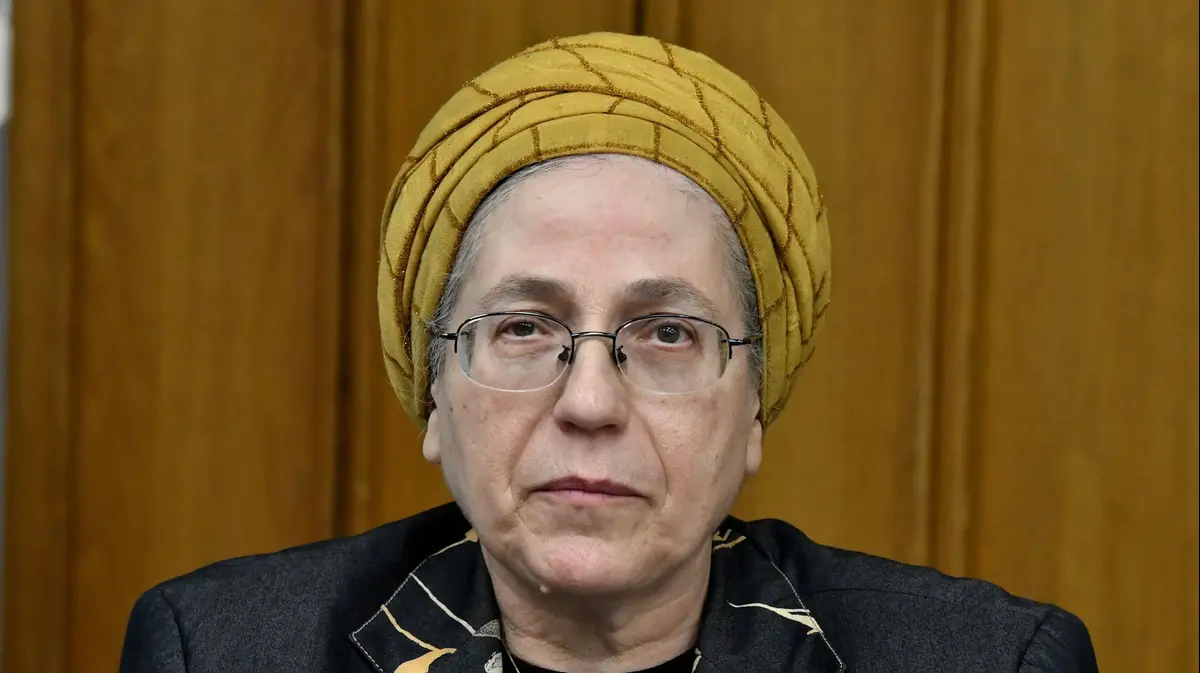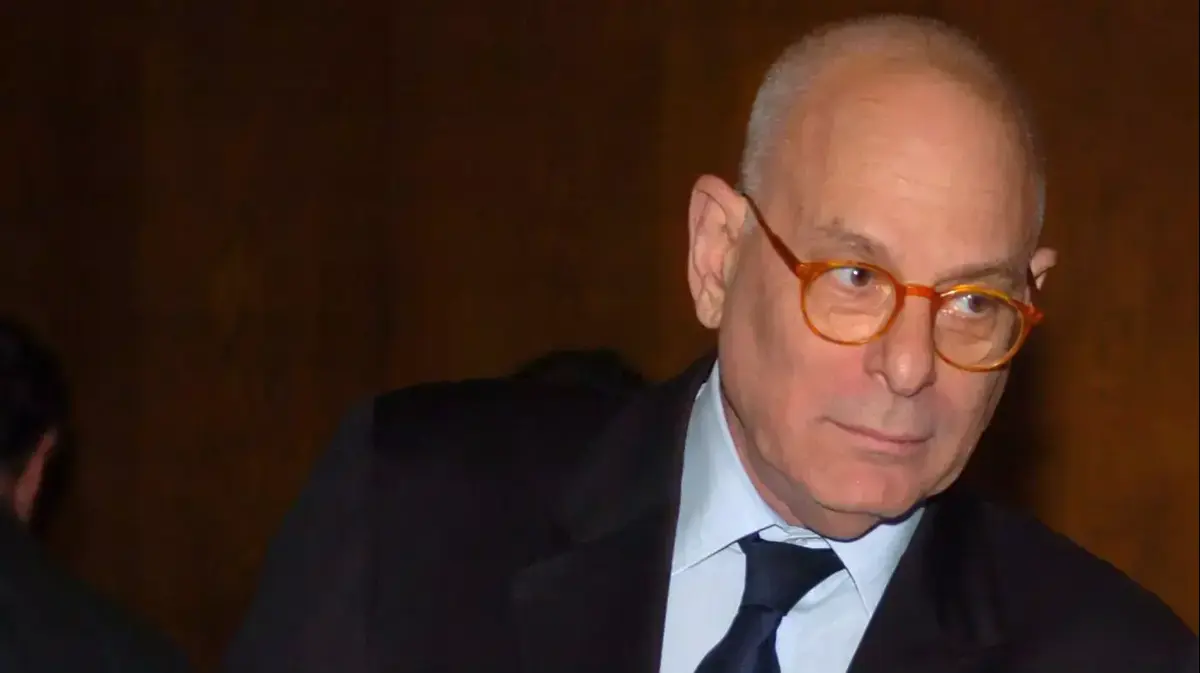In one of his tantrums this week, Justice Minister Yariv Levin was quoted as saying at a cabinet meeting: "A post-Zionist minority is trying to impose its values through the judicial system. Change will come only from a deep and thorough process. We won't sit here forever. This is a government with a historic opportunity to make these changes. We must not miss if we are not determined to make the corrections now and fix them in a way that cannot be changed, and not to be afraid of the left otherwise when we are in the opposite situation and they will not screw us up. If we don't take care of it, we won't do anything."
Let's start from the end: "If we don't take care of it," Levine said. The problem is that you only "handle" it, even though you hardly talked about it in the campaign. You promised the cost of living, you promised governance, you promised personal security, you promised to eradicate terrorism, you failed miserably in all these areas. You only carried out a regime coup and what did you get out of it? Destruction. But that's not what I wanted to write about today.
From the text, I learned that Levine wants to make the change "in a way that cannot be changed." Where has the Democrat gone? Since when do you do things in a democracy in a way that cannot be changed? After all, what you want to do now is change. So why deny it to your successors? But I didn't want to write about that today either. What caught my ears in the Justice Minister's fascist speech is the fact that Levin attributes post-Zionism to the Supreme Court. After all, the "post-Zionist minority" cannot "impose its values" on us without the cooperation of the Supreme Court, right? So the only conclusion is that the Supreme Court is the spearhead of post-Zionism.
Let's cut short procedures and skip ahead: their red flag is Amit. Isaac Amit. The post-Zionist standard-bearer, the modern enemy, the dark threat to the future of the state. That's the name. According to the senority system, Amit is supposed to replace Supreme Court President Hayut this October. Nothing drives this gang madder than this fact. They marked and turned Isaac Amit into a demon of biblical proportions. Their most important goal is to deny him the job. Sometimes I think it's even more important to them than preventing Iran from getting nuclear. There's no trick they don't try to somehow steal this move and block the appointment of that beleaguered colleague. Including this week's noel attempt to abolish the Bar. I was surprised that dolls of his likeness were not burned at the Lag B'Omer bonfires.
Even if I accidentally encounter him on the street, I will not recognize Judge Amit. We never met or spoke. The obsession around him piqued my curiosity. I will try to sketch here the character of the person who today constitutes the most real danger to the Zionist dream. Unfortunately, I couldn't convince him (through associates) to give me a background phone call. "He's a pedant," said one of his friends, "he doesn't understand the media, he doesn't talk to the media, he's also quite shocked by the situation created around him." So I settled for talking to his former interns, his law classmates, judges who served alongside him, people who knew him, friends who studied with him, officers and commanders who served with him. Let's dive into the character of the man who recently ousted Hassan Nasrallah as "the bitterest enemy of the Jewish state."
Raise a red flag against him. Justice Yitzhak Amit (Photo: Reuven Castro)
Yitzhak Amit was born in October 1958 in Tel Aviv as Yitzhak Goldfreind. Both his parents were hardcore Holocaust survivors. "As far as his father was concerned, there were two Independence Days, one was the country's Independence Day and the other was May 8, the day the concentration camp where he was staying was liberated," says one of his friends. The house was religious. Young Itzik (as everyone called him) wore a kippah, like his brother Dov. On April 8 of this year, Prof. Bracha Alpert posted a short post on her Facebook page. "I would love for you to meet," she wrote, "Justice Amit, the next Chief Justice according to the senority system, not what you might have thought." Alpert writes about the coalition's plot to abolish the senority system because, she says, "Amit was labeled by coalition politicians as not their own, as part of claims that the judges were elite and lacked diversity on the court. Yitzhak Amit is my dear cousin and I want to tell you about him from a personal angle," she added.
"As children, we spent a lot of time at each other's parents' homes and vice versa. Yitzhak is the son of Holocaust survivors. His father, who came from a large family of children from a small village, survived seven labor and extermination camps in Poland. His mother, the only survivor of her entire family, was saved by a Christian family that raised her as one of their children. It was found almost by accident after the war and was returned by no means to the people of Israel. His parents met and married in Israel and initially lived in great poverty. Through hard work, they managed to rebuild their lives. The family lived in the Shapira neighborhood in south Tel Aviv, where Yitzhak and his brother Dov attended elementary school. Their parents opened a small workers' restaurant in Jaffa and Yitzhak helped them after school and during vacations. In third grade, the parents, who wanted to give their children a religious education, transferred them to Moriah School in Tel Aviv in a northern part of the city. It took quite a bit of effort: leaving early in the morning and returning late in the dark, taking four buses back and forth. After that, they continued their religious education at Zeitlin High School. Mother Hadassah was a woman of kindness who, in addition to working hard alongside her husband and raising her children devotedly, supported and assisted those in need and was surrounded by friends from all Jewish communities. Abba Shmuel, a religious, honest, ethical man with a sense of humor that amused us at family gatherings. This was the habitat where Judge Yitzhak Amit grew. Amit's studies (with honors) and his service to the state (an officer in 8200) can be read in the Bible... As a member of his family, I can testify firsthand to his sensitivity, kindness and humanity, and to the fact that he always remembers how he grew 'from below,' from the Shapira neighborhood of low means, and his heart did not back up."
It seems that his childhood and his parents' home did not find the smoking gun to turn Yitzhak Amit into an enemy of Israel. So let's move on to the army: he enlisted in 1976 in 8200, mainly thanks to the excellent Arabic trend in Zeitlin. Brigadier General (reserve) Hanan Geffen, later commander of 8200, was his direct commander at the unit's base in the north.
"He was one of the brightest people I worked with," Gefen says, "He reached a tremendous level of expertise in the field for which he was entrusted." They served in an intelligence base in northern Israel, and their area of expertise was Syria. "One day we had a visit from Military Intelligence Director Shlomo Gazit," says Brig. Gen. Geffen, "as soon as he arrived at the base he encountered Itzik's guys, they were several friends from Zeitlin, all wearing kippahs, and from that moment on Amit was the one who dictated the entire visit. He delivered the review for the head of Military Intelligence, it was the most comprehensive and thorough and brilliant that had ever been heard." Gazit was impressed. Vine too. He went to great lengths to persuade a colleague to extend his permanent service, but failed. Amit wanted to study law.
"A post-Zionist minority is trying to impose its values through the judicial system." Levin (Photo: Reuven Castro)
Amit was a medical officer. Retinal intelligence officer. The most important core role in 8200. The officer responsible for all the intelligence collected in his sector: sorts it, drafts it, interprets it, prepares it and distributes it to the right echelons (in his opinion). "His proficiency was there," Geffen recalls, "I was the security officer for the entire northern region and he served under me, he became the supreme authority in the field of the Syrian regime and army, the very light and naïve of the entire issue. When he left, he left behind a large void."
Amit married Rivka, who served on the same base. "I don't remember if they met when he was still serving in regular service, or during one of the periods in the reserves," says Geffen, "she was a mevrit [network intelligence unit], Be'er Shevait, they raised a wonderful family." I asked Geffen if it was possible to attribute to Amit, somehow, any post-Zionist or anti-Israeli tendencies. "It's funny," he said, "he's the most Zionist person I've ever met. And I've met some people in my lifetime." By the way, Gefen was commander of 8200 between 1993 and 1997, immediately after the signing of the Oslo Accords, and is not considered, I write this gently, as one of the agreement's supporters. On the contrary, he had several self-fulfilling prophecies of rage at the time, and instead of participating in the peace dances, he prepared 8200 for the possibility of war, also in Judea and Samaria. "Not long ago," Geffen reveals, "we invited Amit to the unit. We have a forum of all the 8200 commanders and we invited him to visit one of the bases. He wasn't present in the intelligence part, but in the other parts he was, and we were all very honored with him. He was already designated president of the Supreme Court, and you won't find anyone in the unit or army who won't tell you that there is no one more worthy than him."
Y. enlisted one class after another in 8200. "I did the Arab Ulpan one class after him and got to the base where he served in the north," he says, "They were a group of 4-5 guys from Zeitlin, classical religious Zionism, kippahs, great guys. He knew Rivka at the base, she was my soldier. He was a classic Zeitlinist, brilliant, funny, reliable, a good friend. We would do shifts together, we spent endless hours together. They were the dudes of the base, but we were all brothers and sisters. Itzik was simply the salt of the earth. We trusted him with our eyes closed, we learned from him, after his service I still ran into him in the library of the Faculty of Law in Tel Aviv, even as a lawyer he spent long hours there, was as serious as possible, learned everything in his entirety. When I heard that he had been appointed Supreme Court justice, I was filled with pride."
Well, we won't be saved from military service either. Could it be that he descended into the realms of post-Zionism precisely as a jurist? As a student, he was considered a prodigy. Graduated with honors. Then he had a private practice and in 1997 he was appointed for the first time as a magistrate in Acre. There, too, pretend surprised, he is considered brilliant and promising. Moved to Haifa, climbed to district, was appointed supreme. Every lawyer who has appeared before him has the same opinion: he is something special. His scores in the feedback of the various judges were always the highest. "He's a mensch," says a top lawyer who has appeared in Olmo quite a few times, "in front of him you know you'll get your day in court, he treats you with respect, and he's also very fair."
According to Wikipedia, "Amit is sometimes described as an activist, and sometimes as moderately conservative." That is, it is both. It depends on the matter itself. One thing is certain: a colleague is an original judge. "He has innovations, he sometimes uses surprising methods, he's one of those who can't know in advance what will stop, and that's a compliment," says a former judge. "It may be due to the fact that he knows all the worlds, he grew up and was educated in a religious home, moved into the secular world but lives all beings and has a broad vision," the person who sat with him on the judicial bench told me, "One way or another, he is a great Zionist and a wonderful human being."
"He's a mensch." Yitzhak Amit (Photo: official website, Jonathan Zindel/Flash 90)
What about the ruling? Here's how: Amit is known for consistently rejecting petitions against demolishing terrorists' homes. In order for such a petition to be accepted, in his view, the conditions must be extremely stringent. In 2015, Israel's High Court of Justice rejected a petition against the Boycott Law, which imposed economic sanctions on those calling for a boycott of Israel. Amit was in the majority opinion (the ruling was written by Justice Meltzer). That is, approved the law. And the highlight: Amit is the one who approved another hearing in the Mitzpe Kramim affair. After it had already been decided to evacuate the outpost, it was a colleague who approved another discussion, and it was a colleague in the majority opinion who decided, at the end of a verse, to leave the outpost intact. Indeed, gloriously post-Zionist.
So why do they hate him so much? I do not know. I guess he has other rulings as well. Because that's how it is in the legal world. Case-by-case. Just this week, an ultra-conservative panel (Solberg, Willner and Stein) of the Supreme Court ruled against Minister Miki Zohar in an appeal against the libel suit he filed against Cryme Minister. Justice Sohlberg, a religious settler, led the ruling. In a moment, he, too, will be a post-Zionist.
I asked someone who interned with him this week about a colleague as a human being. "Amazing," she said, "just amazing. I adore him. He makes you feel good, he listens to everyone, he's open, he's a good person and he has a special sense of humor. It was just fun to work for him." I asked her about his worldview. "He is complex," she replied, "on the one hand, he still knows his haftarah by heart. He comes from the world of religion, he lives it, but he also knows the other worlds. The most important thing is that he is the most diligent, the most thorough, he knows every case in its details, studies everything in its entirety, comes prepared for hearings, treats the work of judging with reverence. What I liked most about him was his modesty. He doesn't make a fuss about himself, he looks at you from eye level, he doesn't forget where he comes from, and he comes to serve the public, not to rebel against it."
About Amit's sense of humor has already been written. He also has a tendency to mix everyday life with the legal world. He inserted into his judgments phrases of the pale tracker ("I don't care gross, but in my hand") and even Sammy the firefighter: "Sammy came to help, he's the heroic firefighter," he wrote at the beginning of a ruling in which he overturned a decision to require the Fire Authority to compensate factory owners NIS 15 million for negligence. And something else: Here is an excerpt written in Makor Rishon by legal commentator Dr. Yehuda Yifrah: "The irony of the petition to cancel higher education for the ultra-Orthodox sat very close to the judges last Monday, in front of the typist, in the center of courtroom C of the Supreme Court. This irony has a name and a face. Her name is Esti Ohana. An ultra-Orthodox woman from Har Nof. She is married with four children and an intern of Justice Amit, who was assigned as secretary of the High Court hearing." By the way, according to the Ono Academic College, where Ohana studied, this is the first ever ultra-Orthodox intern in the Supreme Court. No wonder it happened with Yitzhak Amit.
The Supreme Court (Photo: Reuven Castro)
It is impossible to conclude without a passage written by Justice Amit at the end of a ruling in an appeal submitted to the Supreme Court by a man convicted of sexually abusing his niece, who was 12 years old. The case was difficult. The girl testified for 9 hours, although she could have been exempted from testifying because of her age. The questions were difficult, there was severe harm to her and her family as a result of this agonizing procedure. The appellant was convicted in the verdict, and also on appeal. A fellow judge must have felt a lot of pain for the girl. This is what he wrote to her, in the concluding passage of the verdict:
"Before concluding, and in view of the nature of the arguments heard from the direction of the appellant, I found a number of words to refer to the complainant herself. As judges, we unfortunately hear a large number of cases that fall under the heading 'sexual offenses in the family'. You showed courage and daring when you stood on the witness stand in the face of a difficult and unpleasant cross-examination. You did so because the people around you allowed you to be put on the witness stand, because they knew you were strong and intelligent and able to withstand it (by law, anyone under the age of 14 can be exempted from testifying in court). From our experience, we can tell you with certainty and clarity: you are the victim and the appellant is the offender. There is no reason for you to take on even a pinch, even an ounce of guilt or shame. You are just as guilty as someone who was robbed by a robber or whose wallet was stolen by a pickpocket. There is no reason for you to burden yourself with guilt or shame or embarrassment or feeling that you have 'complicated' your family. The entire burden should be on the shoulders of the appellant, who hurt you and manipulated, according to his own words, the age gap between you and the trust you and the whole family had in him. Luckily for you, you have a supportive family, parents, brothers and sisters, who all want your best interests. We hope that you will be able to see this verdict as the final chapter of the story you found yourself in just because you were there, and as someone who has already shown mental strength, we wish and believe that you will be able to look forward and move on."
From this judge, from this person, they are trying with all their might to prevent him from reaching the position of Chief Justice. Yariv Levin is convinced that if only he succeeds in blocking Amit and denying him the position, he will immediately be crowned Yehuda Maccabi's successor. The truth is, he deserves it (Levine is an "ultranaire" at work, shamefully). The reality, as most citizens of Israel already know, is the opposite: someone should exempt us from Levin's own punishment. The Israeli who has caused the most damage in the least time to Israel lately. To his credit, he didn't do it all alone. Next to him stands Simcha Rothman, next to them screams my uncle Amsalem, above all hovers the spirit of the one who allowed all this to happen. Benjamin Netanyahu.
The tragedy is that the system really needs repairs, improvements and completions. It could have been done differently. I remember Yariv Levin as a young MK, more than a decade ago. We talked quite a bit and fought together against the sweeping opposition of the State Attorney's Office to the establishment of an audit commission with teeth and powers. Back then, I didn't recognize the extreme extremism, the hostility to everything that smells of democracy and the multiplicity of opinions. I thought he really thought the system needed to be fixed. Later, I realized that he thought the system should be destroyed.
Later, I "caught" the ideologue Levin at a sensitive point. The presidential elections in which Reuven Rivlin, Meir Sheetrit, Dalia Itzik and several others ran for president. Rivlin and Shitrit advanced to the second round. Rivlin was the Likud candidate. Shitrit was nominated "Kadima". Gideon Saar ran Rivlin. Benjamin Netanyahu, God knows why, ran Sheetrit. His quick-footed man was Levine at the time. During the break between the two votes, he went to the rooms of the ultra-Orthodox MKs and urged them, on behalf of Netanyahu, to vote for Sheetrit. Let it seep in: Ruby Rivlin has not yet been the demon that the poison machine has made of him in recent years. He is a right-winger, a glorious Jabotinsky, a true Beitri, someone who opposed all compromises, peace agreements and negotiations, voted against the disengagement "on Sharon's head" (when Netanyahu voted in favor), and so on. In any case, the family psychosis against Rivlin cannot be interpreted using human tools. But Levine? Isn't there a task that is small in size? Probably not.
Fire Levin? Netanyahu (Photo: Roni Knafo)
And now, after the last elections, instead of starting a fleet of bulldozers and storming the hill six days after the formation of the government, Levin could have announced that he was appointing a public committee to sit on the bench and bring him recommendations within a fixed period. The government formed by Netanyahu seemed stable. They all predicted at least four years. What burned for him? There were several more important tasks at stake. Cost of living. Terror. Violence. Governance. Iran's nuclear program. Do work, hold public debate, mobilize support, work as a patriotic legislator should. This is a constitutional change. Changing the rules of the game. This is not done with a snatch or a forceful blitz. But Levine got caught up in vertigo. The intoxication of power made him more smug than usual, more aggressive than ever. Now he's picking up the pieces.
I believe that an override clause, for example, is necessary. It should be included within a broad, comprehensive, balanced and democratic legislative Basic Law. A law that will end the war between the authorities and restore balance. The High Court of Justice will only be able to strike down a law by a special majority of judges (not unanimously, of course). The High Court of Justice will not be able to invalidate Basic Laws, but a Basic Law will be enacted in four readings and a special majority. After the High Court of Justice strikes down a law, the Knesset will be able to overcome the disqualification by a majority of 70 MKs, including 2-3 hands outside the coalition. And it is possible to tighten the grounds of reasonableness, to define more precisely the offense of breach of trust, to limit the term of office of the attorneys general in time (but in no way to harm their powers or independence). There is something to be done and there is something to work on. Instead, the Huns stormed the fortress (but without Attila). As of now, they have been wiped out. It doesn't collapse. The Israeli public will not let this happen. What is collapsing in the meantime is the state.
What is happening at the President's House? Much more than you think. After all the briefings, breakdowns, leaks, threats, spins and shticks, the sides are still sitting there. The fact that Ron Dermer is Netanyahu's tone giver at the event shows seriousness. I would also recommend paying attention to attorney Ronen Aviani (on behalf of the state camp) and Naama Schultz, Lapid's CEO. On Wednesday, after the coalition pulled back the hijacking attempt on the issue of the Bar Association, Yesh Atid also announced that it had mistakenly voted in favor of any opposition proposal.
They will have to bring something in the next two weeks. What exactly? No one knows, but you could call it "agreements and protections." What do protections mean? Agreement that there is no unilateral legislation and that the Judicial Appointments Committee is elected on the existing model, including an opposition member. And what are consents? Try to narrow the gaps on the issues of controversy. To create the consensus that there should be a Basic Law, legislation and a Basic Law on Judiciary, and that relations between them should be regulated. The real work in the so-called "President's House" takes place in a much smaller capacity than the full composition of delegates. If it succeeds, it will surely be exposed.
The problem is that both sides have opposition. Gantz and Lapid are constantly kidnapping the protest leaders. They absorb and suffer in silence. Netanyahu is kidnapping Yariv Levin, David Amsalem and part of his Likud base. He doesn't like to suffer. The thing is, and this is what has been said inside the room by objective sources, that between the two extremes, there is a large block of 70% of the public urging its elected officials to reach an agreement. The people don't want confrontation, they don't want chaos, they don't want a constitutional crisis. They want consent. Not just the people. The state too. The army too. So is the economy. Our children too. Everyone wants to.
What is happening at the President's House? Gantz and Lapid (Photo processing, Avshalom Shouni Flash 90)
In a civilized world, Netanyahu would have long ago realized the magnitude of the error and quickly cut to a tourniquet: getting off this evil idea and forgetting about it in the blink of an eye. In our world, Netanyahu is stuck with his partners, stuck with his coalition and stuck with himself. He has no power for bold moves. He is a prisoner of the labyrinth he built, he has to eat what he cooked. The question is, should it be pushed to the edge, or go to agreement. Tough question.
Not long ago, Netanyahu examined the damage if and when he fires Yariv Levin, or if he resigns himself. That's four to five seats. Meanwhile, a poll was published examining how many seats a party headed by Levin would get, if and when, under the banner of judicial reform. Six seats. Those who start with six seats end up with six. There is no real electorate for this event. Until a few weeks ago, most Bibists didn't even know what it was all about.
As of now, the mass protest against the regime coup is a sweeping, heartwarming, inspiring success. We must not forget that. On the other hand, one must not fall in love with it. It is permissible to want a change of government and it is also permissible to demonstrate for this cause, but all eyes must remain on the real ball that brought hundreds of thousands to the streets: democracy.
Netanyahu's government will rise or fall on itself. The economic situation will not improve anytime soon. It will get worse. The first and main sufferers will be right-wing voters. The security situation will also not improve substantially. Nor is governance. In all these areas, this government is a dismal, predictable failure. When you gather all the maniacs of the environment, with zero managerial or executive experience, and divide among them what was once a functioning government, shredding government ministries to pieces and splitting important ministries like Yitzhak Goldknopf's rental apartments, you get a caricature. Since the government doesn't really think about the state, but about itself, what is left for us, the huge protesting public, is to take its place. Think about the country. If it is possible to prevent the chaos, stop the deterioration and stop the chain of disaster, it must be exhausted. We are on the verge of the cliff. Any unnecessary sharp movement, any stupid trick, can plunge us into the abyss. It is important that we remember that when we fall there, we will all fall together.
- news
- Opinions and interpretations
Tags
- Yariv Levin
- The Legal Revolution















